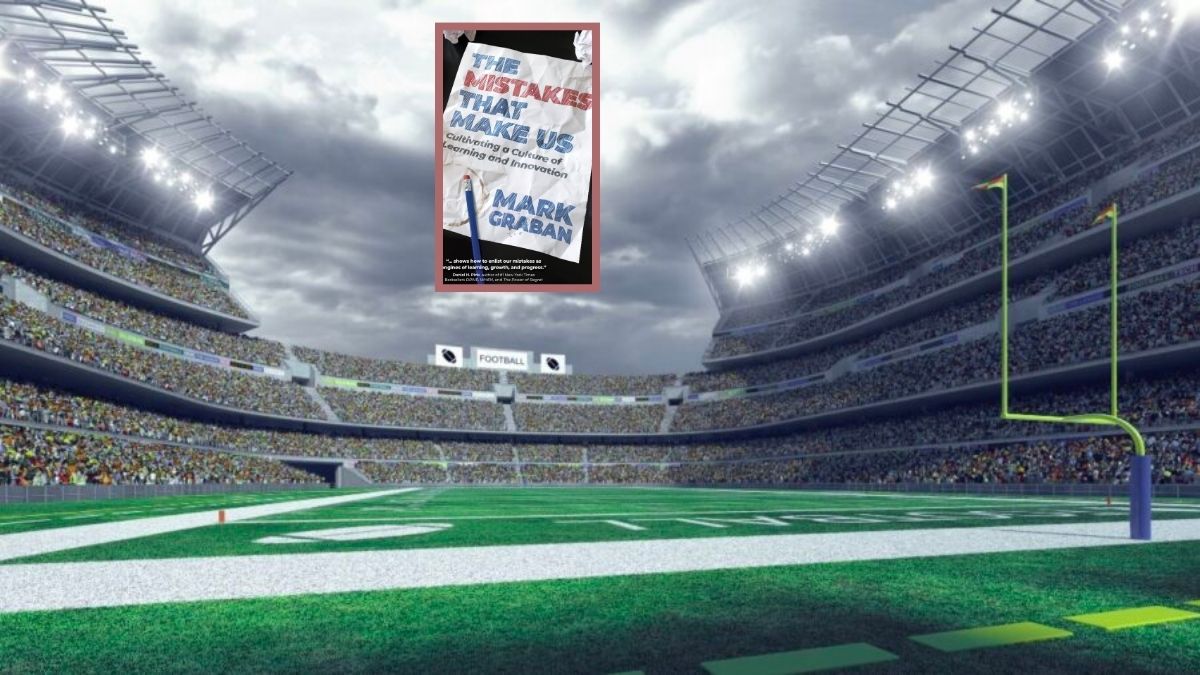In the dynamic world of sports, just as in business and life, mistakes are often viewed with a sense of dread – tens of thousands (or millions) of people might be watching.
However, there are instances where a seemingly poor decision or a blatant error can surprisingly turn into a triumphant success.
A similar scenario unfolded recently in the world of professional football, where a bad decision by the San Francisco 49ers’ quarterback Brock Purdy, resulted in an unexpected positive outcome. This incident serves as a perfect real-life parallel to the principles I discuss in my book, The Mistakes That Make Us: Cultivating a Culture of Learning and Innovation.
Read more or see this short video:
Here is the touchdown in question — bad decision, but a good result… a touchdown pass from Purdy to receiver Brandon Aiyuk:
That's how you start! 🔥@brockpurdy13 ➡️ @THE2ERA
— San Francisco 49ers (@49ers) November 12, 2023
📺 #SFvsJAX on FOX
📱 NFL+ // https://t.co/KTh0i4nCVJ pic.twitter.com/Ctfw6VJWYy
Quarterbacks are taught not to throw back into the middle of the field once they’ve rolled toward one of the sidelines.
A few years ago, Peyton Manning could get away with that mistake… unless he didn’t.
Peyton Manning finally pays for violating ‘the old rule No. 1’
The mistake, like it did with Purdy, could lead to a touchdown:
“That’s the old rule No. 1 you never do,” Manning tells Stokley as they jog together off the field, knowing passers at every level of football are coached not to throw across their body back toward the middle of the field. “When you’re in your 15th year, you kinda say, ‘Who gives a (expletive)?'”
After making that mistake in a playoff game (with a bad outcome that led to a loss), Manning said something different:
After being flushed from the pocket, Manning again fired across his body toward his most trusted target. But the football gods made him pay and rewarded Graham with the ill-advised interception that set up Justin Tucker’s game-winning field goal six plays later.
“Bad throw. Probably the decision (wasn’t) great either,” Manning said afterward. “I thought I had an opening, and I didn’t get enough on it, and I was trying to make a play and certainly a throw I’d like to have back.”
But most of us don’t play football, so let’s think about other situations in business.
The Unpredictable Nature of Mistakes
In both football and business, decisions are made with the best information and intentions at hand. Yet, the outcome can be drastically different from what was anticipated. In the 49ers’ case, a decision that was initially deemed a mistake led to a touchdown. This twist of fate highlights a crucial lesson: the outcomes of our actions, especially mistakes, can be unpredictable and sometimes surprisingly beneficial.
Learning from the Unexpected
The key takeaway from such scenarios is the importance of being open to learning from every experience. In The Mistakes That Make Us, I emphasize the value of embracing mistakes as learning opportunities. When a mistake leads to a positive result, it’s an invitation to analyze and understand the factors that turned the tide. Was it sheer luck, or were there underlying elements that contributed to the success?
Applying This to Business and Personal Growth
Just like in sports, business leaders and individuals often face situations where their decisions don’t go as planned. The ability to adapt, learn, and find value in these moments is what differentiates successful individuals and organizations. It’s about cultivating a culture where mistakes are not feared but are seen as potential stepping stones to innovation and unexpected successes.
Conclusion
The story of the 49ers’ unexpected touchdown is more than just a thrilling sports moment; it’s a testament to the unpredictable nature of mistakes and the immense learning potential they hold. In business, as in life, adopting a mindset that welcomes and learns from mistakes, even when they lead to success, is crucial for continuous growth and innovation.
For more insights into harnessing the power of mistakes for personal and organizational development, I invite you to explore The Mistakes That Make Us.



